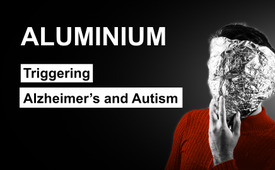Subtitle "Afrikaans" was produced by machine.Subtitle "አማርኛ" was produced by machine.Subtitle "العربية " was produced by machine.Subtitle "Ārāmāyâ" was produced by machine.Subtitle "azərbaycan dili " was produced by machine.Subtitle "беларуская мова " was produced by machine.Подзаглавието "България" е създадено от машина.সাবটাইটেল "বাংলা " মেশিন দ্বারা তৈরি করা হয়েছিল।Subtitle "བོད་ཡིག" was produced by machine.Subtitle "босански" was produced by machine.Subtitle "català" was produced by machine.Subtitle "Cebuano" was produced by machine.Subtitle "ગુજરાતી" was produced by machine.Subtitle "corsu" was produced by machine.Podtitul "Čeština" byl vytvořen automaticky.Subtitle "Cymraeg" was produced by machine.Subtitle "Dansk" was produced by machine.Untertitel "Deutsch" wurde maschinell erzeugt.Subtitle "Untertitel" was produced by machine.Ο υπότιτλος "Ελληνικά" δημιουργήθηκε αυτόματα.Subtitle "English" was produced by machine.Subtitle "Esperanto" was produced by machine.El subtítulo "Español" se generó automáticamente.Subtitle "Eesti" was produced by machine.Subtitle "euskara" was produced by machine.Subtitle "فارسی" was produced by machine.Subtitle "Suomi" was produced by machine.Le sous-titrage "Français" a été généré automatiquement.Subtitle "Frysk" was produced by machine.Subtitle "Gaeilge" was produced by machine.Subtitle "Gàidhlig" was produced by machine.Subtitle "Galego" was produced by machine.Subtitle "Schwizerdütsch" was produced by machine.Subtitle "هَوُسَ" was produced by machine.Subtitle "Ōlelo Hawaiʻi" was produced by machine.Subtitle "עברית" was produced by machine.Subtitle "हिन्दी" was produced by machine.Subtitle "Mẹo" was produced by machine.Podnaslov "Hrvatski" generiran je automatski.Subtitle "Kreyòl ayisyen " was produced by machine.Subtitle "Magyar" was produced by machine.Subtitle "Հայերեն" was produced by machine.Subtitle "Bahasa Indonesia " was produced by machine.Subtitle "Asụsụ Igbo " was produced by machine.Textun"Íslenska" var framkvæmt vélrænt.Sottotitoli "Italiano" sono stati generati automaticamente.字幕は"日本語" 自動的に生成されました。Subtitle "Basa Jawa" was produced by machine.Subtitle "ქართული" was produced by machine.Subtitle "қазақ тілі " was produced by machine.Subtitle "ភាសាខ្មែរ" was produced by machine.Subtitle "ಕನ್ನಡ" was produced by machine.Subtitle "한국어" was produced by machine.Subtitle "कोंकणी語" was produced by machine.Subtitle "کوردی" was produced by machine.Subtitle "Кыргызча" was produced by machine.Subtitle " lingua latina" was produced by machine.Subtitle "Lëtzebuergesch" was produced by machine.Subtitle "Lingala" was produced by machine.Subtitle "ພາສາ" was produced by machine.Subtitle "Lietuvių" was produced by machine.Subtitle "Latviešu" was produced by machine.Subtitle "fiteny malagasy" was produced by machine.Subtitle "te reo Māori" was produced by machine.Subtitle "македонски јазик" was produced by machine.Subtitle "malayāḷaṁ" was produced by machine.Subtitle "Монгол хэл" was produced by machine.Subtitle "मराठी" was produced by machine.Subtitle "Bahasa Malaysia" was produced by machine.Subtitle "Malti" was produced by machine.Subtitle "မြန်မာစာ " was produced by machine.Subtitle "नेपाली" was produced by machine.Ondertitels "Nederlands" machinaal geproduceerd.Subtitle "Norsk" was produced by machine.Subtitle "chiCheŵa" was produced by machine.Subtitle "ਪੰਜਾਬੀ" was produced by machine.Podtytuł "Polska" został utworzony przez maszynę.Subtitle "پښتو" was produced by machine.Legenda "Português" foi gerada automaticamente.Subtitle "Română" was produced by machine.Subtitle "Язык жестов (Русский)" was produced by machine.Субтитры "Pусский" были созданы машиной.Subtitle "Kinyarwanda" was produced by machine.Subtitle "सिन्धी" was produced by machine.Subtitle "Deutschschweizer Gebärdensprache" was produced by machine.Subtitle "සිංහල" was produced by machine.Subtitle "Slovensky" was produced by machine.Subtitle "Slovenski" was produced by machine.Subtitle "gagana fa'a Samoa" was produced by machine.Subtitle "chiShona" was produced by machine.Subtitle "Soomaaliga" was produced by machine.Titra "Shqip" u krijua automatikisht.Subtitle "србски" was produced by machine.Subtitle "Sesotho" was produced by machine.Subtitle "Basa Sunda" was produced by machine.Undertext "Svenska" är maskinell skapad.Subtitle "Kiswahili" was produced by machine.Subtitle "தமிழ்" was produced by machine.Subtitle "తెలుగు" was produced by machine.Subtitle "Тоҷикй" was produced by machine.Subtitle "ภาษาไทย" was produced by machine.ንኡስ ኣርእስቲ "ትግርኛ" ብማሽን እዩ ተፈሪዩ።Subtitle "Türkmençe" was produced by machine.Subtitle "Tagalog" ay nabuo sa pamamagitan ng makina.Altyazı "Türkçe" otomatik olarak oluşturuldu.Subtitle "татар теле" was produced by machine.Subtitle "Українська " was produced by machine.ذیلی عنوان "اردو" مشین کے ذریعہ تیار کیا گیا تھا۔Subtitle "Oʻzbek" was produced by machine.Phụ đề được tạo bởi máy.Subtitle "Serbšćina" was produced by machine.Subtitle "isiXhosa" was produced by machine.Subtitle "ייִדיש" was produced by machine.Subtitle "Yorùbá" was produced by machine.Subtitle "中文" was produced by machine.Subtitle "isiZulu" was produced by machine.
kla.TV accepts no liability for defective translation.kla.TV accepts no liability for defective translation.kla.TV accepts no liability for defective translation.kla.TV accepts no liability for defective translation.kla.TV accepts no liability for defective translation.kla.TV accepts no liability for defective translation.kla.TV не носи отговорност за некачествен превод.অপর্যাপ্ত অনুবাদের জন্য kla.TV কোন দায় বহন করে না।kla.TV accepts no liability for defective translation.kla.TV accepts no liability for defective translation.kla.TV accepts no liability for defective translation.kla.TV accepts no liability for defective translation.kla.TV accepts no liability for defective translation.kla.TV accepts no liability for defective translation.kla.TV nenese žádnou odpovědnost za chybné překlady.kla.TV accepts no liability for defective translation.kla.TV accepts no liability for defective translation.kla.TV übernimmt keine Haftung für mangelhafte Übersetzung.kla.TV accepts no liability for inadequate translationΗ kla.TV δεν φέρει καμία ευθύνη για ανεπαρκή μετάφραση.kla.TV accepts no liability for defective translation.kla.TV accepts no liability for defective translation.kla.TV no se hace responsable de traducciones incorrectas.kla.TV accepts no liability for defective translation.kla.TV accepts no liability for defective translation.kla.TV accepts no liability for defective translation.kla.TV accepts no liability for defective translation.kla.TV n'assume aucune responsabilité en cas de mauvaise traduction.kla.TV accepts no liability for defective translation.kla.TV accepts no liability for defective translation.kla.TV accepts no liability for defective translation.kla.TV accepts no liability for defective translation.kla.TV accepts no liability for defective translation.kla.TV accepts no liability for defective translation.kla.TV accepts no liability for defective translation.kla.TV accepts no liability for defective translation.kla.TV accepts no liability for defective translation.kla.TV accepts no liability for defective translation.kla.TV ne preuzima nikakvu odgovornost za neadekvatne prijevode.kla.TV accepts no liability for defective translation.kla.TV nem vállal felelősséget a hibás fordításértkla.TV accepts no liability for defective translation.kla.TV accepts no liability for defective translation.kla.TV accepts no liability for defective translation.kla.TV tekur enga ábyrgð á áræðanleika þýðingarinnarKla.TV non si assume alcuna responsabilità per traduzioni lacunose e/o errate.Kla.TV は、不適切な翻訳に対して一切の責任を負いません。kla.TV accepts no liability for defective translation.kla.TV accepts no liability for defective translation.kla.TV accepts no liability for defective translation.kla.TV accepts no liability for defective translation.kla.TV accepts no liability for defective translation.kla.TV accepts no liability for defective translation.kla.TV accepts no liability for defective translation.kla.TV accepts no liability for defective translation.kla.TV accepts no liability for defective translation.kla.TV accepts no liability for defective translation.kla.TV accepts no liability for defective translation.kla.TV accepts no liability for defective translation.kla.TV accepts no liability for defective translation.kla.TV accepts no liability for defective translation.kla.TV accepts no liability for defective translation.kla.TV accepts no liability for defective translation.kla.TV accepts no liability for defective translation.kla.TV accepts no liability for defective translation.kla.TV accepts no liability for defective translation.kla.TV accepts no liability for defective translation.kla.TV accepts no liability for defective translation.kla.TV accepts no liability for defective translation.kla.TV accepts no liability for defective translation.kla.TV accepts no liability for defective translation.kla.TV accepts no liability for defective translation.kla.TV aanvaardt geen aansprakelijkheid voor foutieve vertalingen.kla.TV accepts no liability for defective translation.kla.TV accepts no liability for defective translation.kla.TV accepts no liability for defective translation.kla.TV nie ponosi odpowiedzialności za wadliwe tłumaczenie.kla.TV accepts no liability for defective translation.kla.TV não se responsabiliza por traduções defeituosas.kla.TV accepts no liability for defective translation.kla.TV accepts no liability for defective translation.kla.TV не несет ответственности за некачественный перевод.kla.TV accepts no liability for defective translation.kla.TV accepts no liability for defective translation.kla.TV accepts no liability for defective translation.kla.TV accepts no liability for defective translation.kla.TV accepts no liability for defective translation.kla.TV accepts no liability for defective translation.kla.TV accepts no liability for defective translation.kla.TV accepts no liability for defective translation.kla.TV accepts no liability for defective translation.kla.TV nuk mban asnjë përgjegjësi për përkthime joadekuate.kla.TV accepts no liability for defective translation.kla.TV accepts no liability for defective translation.kla.TV accepts no liability for defective translation.Kla.TV tar inget ansvar för felaktiga översättningar.kla.TV accepts no liability for defective translation.kla.TV accepts no liability for defective translation.kla.TV accepts no liability for defective translation.kla.TV accepts no liability for defective translation.kla.TV accepts no liability for defective translation.kla.TV ንዝኾነ ጉድለት ትርጉም ዝኾነ ይኹን ሓላፍነት ኣይቅበልን እዩ።kla.TV accepts no liability for defective translation.kla. Walang pananagutan ang TV sa mga depektibong pagsasalin.kla.TV hatalı çeviriler için hiçbir sorumluluk kabul etmez.kla.TV accepts no liability for defective translation.kla.TV accepts no liability for defective translation.kla.TV عیب دار ترجمہ کے لیے کوئی ذمہ داری قبول نہیں کرتا ہے۔kla.TV accepts no liability for defective translation.Kla. TV không chịu trách nhiệm về bản dịch không đầy đủ.kla.TV accepts no liability for defective translation.kla.TV accepts no liability for defective translation.kla.TV accepts no liability for defective translation.kla.TV accepts no liability for defective translation.kla.TV accepts no liability for defective translation.kla.TV accepts no liability for defective translation.
kla.tv/27615

Popular 396.985 views
This is a modal window.
The media could not be loaded, either because the server or network failed or because the format is not supported.
Legal bankruptcy – what now? With practical examples Heinz Raschein
07.12.2023
www.kla.tv/27615
Heinz Raschein, retired lawyer and notary, attested to the bankruptcy of the Swiss legal system at the 19th AZK. He presents his assessment clearly, using the Federal Constitution, its revision, the Covid laws and lawsuits filed, among other things. He courageously says what others shy away from. A call to all for personal responsibility and civil courage!
[continue reading]
Legal bankruptcy – what now? With practical examples Heinz Raschein
Download broadcast and attachments in the wanted quality:
396.985 views

|
Information on other conferences:
https://www.anti-zensur.info |
|---|
Useage rights:
Standard-Kla.TV-Licence
Topics A-Z
Enter a word for search or use the alphabetic search-order


















Sendungstext
herunterladen
07.12.2023 | www.kla.tv/27615
Short biography: Born in the Swiss village of Malix in 1956 where Heinz Raschein also attended Elementary School. He then attended the Latin High school in Chur preparing for university. At this time his father was elected Federal Judge in Lausanne and the family moved to the French speaking part of Switzerland. The time in Romandie are some of the nicest years of his life. 1976 he was awarded the college prep level high school diploma from Montbenon High school After military school he could call himself a private in the Swiss Mountain Infantry. From the end of 1976 to the end of 1981, Heinz Raschein studied jurisprudence at Bern University and achieved the lieutenant level in the military. This was followed by an attorney internship in Chur. After which he became a lawyer, and later achieved the notary title. With the second-best grade in his doctoral examination, Magna cum Laude, he wrote his dissertation on the topic of “Illegality in the Swiss system of liability law”. For nearly thirty years, Heinz Raschein was self-employed directing an Advocacy and Notary’s Office. At the age of 50, he was discharged from the army as a major of military justice. Currently Heinz Raschein experiences a very lively retirement and is grateful for the great approval and support recieved for his work. He is helping people who feel harassed by Corona measures. He has three married daughters, four grandchildren and a partner that has grown dear and precious to him over the last twenty years. Heinz Raschein speaks today on the topic: Legal bankruptcy – what now? With practical examples Heinz Raschein: Dear friends, I am delighted to be able to speak at AZK. I have tried in vain for an estimated five years to be allowed to join you as an audience member. The fact that I have now made it for the first time even as an invited speaker fills me with pride. My second daughter is a biologist and doesn’t agree with me on all questions of life. But she does on whether there are two or 58½ genders. I am grateful to her for that. I take the view that if I use the feminine form alone or the masculine form alone in my presentation, both are meant. The topic of my presentation is “Legal bankruptcy and possible ways out of it”. I divide this into the subtitles shown in this slide. I will show the path to legal bankruptcy. I will talk about the two total reviews of the Federal Constitution in 1885 and 1999. I will mention skeptical voices – in a certain context on which I will elaborate on – and then I will come to a few major projects that we have initiated on the part of the movement as possible ways out of the legal bankruptcy that has been identified. And at the very end, I will talk about options for acts and omissions for the future. 1 The path to legal bankruptcy If we take a closer look at the concepts of democracy and the rule of law, we will realize that democracy and the rule of law are two different things. We are currently experiencing this, we see that there can be democracy without the rule of law, and previous power structures have shown that the reverse is also possible – the state under the rule of law without democracy. Given the choice of whether I prefer democracy or the rule of law, my answer is the rule of law. Because democracy without the rule of law is nothing more than an empty shell. The entity that calls itself the Swiss Confederation has committed itself to the state under the rule of law in the Federal Constitution, which was totally revised in 1999. I refer you to this slide here (slide 04, The road to legal bankruptcy). The most reliable text version of this decree can be found on the Fedlex website of admin.ch. If you hit the right place there, you will see the assurance highlighted in green on the left: “This text is in force”; if you had mistakenly found an earlier text version, you would find the note highlighted in red in the same place: “This text is not in force”. As we shall see, this is not proof, but a mere assurance. For the following explanations, however, we can now make the theoretical assumption that we can trust the assurances from Fedlex highlighted in red or green. At this point, I’m going to have to use a bit of technical language. I know how tiring legal terminology can be. But Ivo has invited lawyers, judges and other legal experts for you today, so he wants to pay special attention to the legal perspective. That’s why I’m next going to explain the concept of the hierarchy of norms to you because I think you need to become stronger in legal knowledge than Alain Berset and the other six political actors. The Federal Constitution is the highest form of enactment known to the Swiss Confederation. As the only exception to the hierarchy of norms, it states that international law must be observed in its application (Art. 5). In contrast to the Constitution, international law is only partially comprehensible because its legal sources are fragmented. Depending on the political stance, this passage can be understood as ranging from “take into account” to “follow unconditionally”. The constitution is only valid if it has been adopted by both the people and the cantons. The next level of the hierarchy of norms are the federal laws. A federal law can come into force if our parliament, i.e. both councils, have each given their approval, with the possibility of subjection to a referendum. The law must be signed by the Presidents of both Councils and their actuaries. If the people do not hold a referendum or if a referendum is unsuccessful, the law comes into force. The Federal Council ordinances occupy the lowest level in the hierarchy of norms. Unlike the Constitution, which requires a majority of the people and the cantons, or laws, which simply need a parliamentary majority, Federal Council ordinances are created with the mere approval of seven members elected by parliament. As a lawyer for victims of Corona measures, I want to know from the Federal Court whether the Federal Council has complied with or exceeded its authority to issue ordinances. For every ordinance it issues, it must be able to rely on a legal basis. In the same way, laws must have a constitutional basis. On this issue, we like-minded people – contrary to the government, parliament, the judiciary and the media – are quite sure that the Epidemics Act is not nearly enough for that. If we now want to know since when this totally revised Federal Constitution has been considered “put into force” and thus bindingly applicable, we can look it up in the so-called “Official Collection of Federal Legislation”. You need to know that the Confederation maintains an Official Compilation (abbreviation: AS) and a Systematic Compilation of Laws (abbreviation: SR) in parallel. Both are considered to have equal status, but are organized according to different criteria. I call up the AS by year and page – indicated here (see slide 2.1) – and the SR by enactment number; the SR organizes the enactments by legal subject matter. As the Federal Constitution is the highest of all enactments, it bears the number SR 101. We therefore find in the AS under AS 1999 2556 a Federal Decree of both Councils dated December 18, 1998 and the note: “This text is in force.” The Federal Decree contains the entire revision text for the new Federal Constitution, which was adopted by Parliament for the attention of the people with this resolution. This was followed by a referendum in 1999, which resulted in a clear majority in favor of the revised text. The matter then came before the Councils again, which brought the constitutional text adopted by the people into force on January 1, 2000 with a further federal decree dated September 28, 1999, more precisely under AS 1999 2555. And you can see here the beginning of this resolution and the last page with the signatures, the original of which must be handwritten. So, for our theoretical consideration, we can stick to this constitutional text. The state under the rule of law appears in Articles 5, 8 and 9. I have highlighted this on the slide. The first of these provisions (Article 5) establishes the law as the basis and limit of state action. It stipulates that state action must be in the public interest and proportionate. Both sides of the exchange, namely the state bodies on the one hand and us, private individuals on the other, are required to act in good faith. Finally, Article 5 of the Federal Constitution refers to the primacy of international law. Article 8 states that all persons are equal before the law; it contains a prohibition of discrimination on grounds of origin, race, sex, age, language, social status, way of life, religious, philosophical or political conviction, or disability. As legislators, the Federal Assembly is instructed to ensure the legal and de facto equality of men and women. Article 9 reiterates the prohibition of arbitrariness and the requirement for the state to act in good faith. This is ultimately a repetition of the statement in Article 5, because the violation of the principle of proportionality on the part of state authorities amounts to arbitrary action on their part. According to the legal doctrine recognized throughout the German-speaking world, the principle of proportionality has three elements. Firstly, state action must be necessary; secondly, it must be expedient; and thirdly, harm and benefit must be balanced. Of course, opinions can differ on all three of these proportionality criteria. However, the practical experience of the last three and a half years shows that our four so-called powers of the state – legislature, government, judiciary and media – have merely asserted the proportionality of the corona measures issued by the Federal Council by way of ordinance in general terms, and have not explained and proven the three aspects mentioned above. My wealth of experience in this area coincides with that of my two esteemed colleagues, who I consider to be authoritative in this field. One of them is Philipp Kruse. In contrast to the three state powers mentioned, we have always and repeatedly endeavored to cast doubt on their proportionality in all three mentioned aspects. My position is that the burden of proof lies entirely with the state authorities that dictated the measures. My colleagues have invested more legal diligence in this regard and in their two major feeds have submitted motions for evidence against the measures taken, which I personally do not consider necessary – for the last principle of the rule of law to be mentioned here is: “Whoever makes an allegation bears the burden of proof; otherwise the allegation is irrelevant.” This is stated in Article 8 of the Civil Code, a federal law. However, it is not only enshrined in law, but has been elevated to constitutional status with the prohibition of arbitrariness (Article 9 of the Federal constitution). In the hope for more success, my two colleagues have provided a burden of proof that I do not consider to be required, rather to be provided voluntarily. We therefore note that our side has tried again and again to demonstrate the disproportionality, but has come up against a silent wall of rejection. To this day, the public authorities refuse to meet their burden of proof. Overall, we are facing the collapse of four supporting pillars of a minimal constitutional state. These are the principles of the prohibition of arbitrariness, the principle of proportionality, the separation of powers and the distribution of the burden of proof. And in this finding, I see a legal bankruptcy that stands in irreconcilable contradiction to our August 1st speeches. I will come back later to the fact that there is a fifth damaged pillar, the signature requirement. This brings me to the history of the two total revisions of our Federal Constitution. 2. Nature and face of the total revision The total revision of 1999 was the second one that Switzerland has experienced since its foundation. The first dates back to 1875, 27 years after the creation of the federal state. This first total revision involved the introduction of globally unique popular rights – initiative and referendum. The initiative allows the Swiss people to propose amendments to the Federal Constitution and put them to the vote. With the referendum, they can ensure that laws already passed by parliament are also submitted to the people for approval or rejection. How many of you – please raise your hands – know the political-party composition of the very first Federal Council of 1848? It is little known today that we had seven liberal Federal Councilors back then, or rather our ancestors did. There was no talk of a magic formula back then. This constitution did not even know the aforementioned rights of the people, because the Catholic-oriented citizens of Central Switzerland had no representation in the Federal Council at that time. In 1875, Gotthard engineer Alfred Escher realized that he could only obtain approval for his construction project of the century by making concessions to these same cantons of Central Switzerland. And so, he came up with the idea of making the following concept palatable to the then very powerful Zurich Free Party: “We are amending the constitution and accommodating the people of Central Switzerland by giving them the right of initiative and referendum.” As this was one of the main concerns of the Catholic people of Central Switzerland, they were won over to the new transport axis, which ran through their territory. This gave the Swiss people an epoch-making right to have a say in federal matters. In my view, this first total revision was a real step forward. The second total revision in 1999, more than a century later, was a different story. At that time, the Swiss lawyer Kaspar Villiger was Federal Minister of Justice. Leon Schlumpf was a member of the preliminary advisory committee of experts before his time in the Federal Council. I knew him personally because his daughter Eveline was a close and well-known classmate at the cantonal school. He and my father, now a federal judge, jointly assured me, as did Kaspar Villiger in public, that this second total revision was a new, pure reorganization of the systematic order, and expressly without any material interference with previously existing rights. The assurance was clear to everyone: “We don’t want to change your rights, we just want to organize them more clearly.” The following example proves the opposite. Although I was very busy at the time with the birth of three daughters, becoming a partner in a joint practice and obtaining a license to practice as a lawyer and notary, I intuitively did not trust these assurances and voted against the total revision of 1999. Today it is clear how justified this “no” was. Contrary to these assurances, the totally revised Federal Constitution contains at least one very drastic material change. Previously, Art. 113 para. 2 aBV (aBV = old Federal Constitution) applied. According to this provision, lawyers could not refer federal laws passed by Parliament to the Federal Supreme Court for review. From time immemorial, therefore, one had to accept this regulation on the distribution of power. However, as far as Federal Council ordinances were concerned, there was at that time a full review of the constitutionality of such ordinances by the Federal Supreme Court. The new Federal Constitution now states in Art. 189 BV that Federal Council ordinances as well can no longer be referred to the Federal Supreme Court for a review of their constitutionality. As we have just seen – since all Corona measures are based solely on Federal Council ordinances – this is an extremely fatal encroachment on the rights of the people. This amounts to a complete abolition of the so-called “abstract review of norms” at federal level (legal terminology). I request an abstract review of legal norms from the Federal Supreme Court if I bring a Federal Council ordinance directly before the Federal Supreme Court and request a review of its constitutionality. If the Federal Supreme Court comes to the conclusion that the ordinance as a whole or individual provisions thereof are unconstitutional, it declares the ordinance or individual provisions thereof null and void. This is the abstract review of legal norms, which the total revision of 1999 unfortunately abolished. In the materials on this – this is the genesis of Art. 189 BV – and in the parliamentary consultation minutes, it says: “This abolition of the abstract review of standards does not affect the concrete review of standards.” The concrete review of norms is also called accessory review of norms. It means that if, for example, Rémy Stettler receives a fine for refusing to wear a face covering in the Bernese arbors outdoors, I can submit this to the court with the request to carry out the concrete review of standards. The court must then examine whether the norm applied is constitutional. Should this not be the case, it does not result in the nullity of the reviewed standard, but rather its inapplicability. It is now apparent that the courts are still refusing to review concrete standards. We have taken Rémy Stettler's case all the way to the Federal Supreme Court. And in its ruling, the Federal Supreme Court stated that “The implementation of the concrete review of norms in this case would be tantamount to an abstract review of norms prohibited by the new Constitution.” This statement can only lead to the conclusion that today’s federal judges, who have been fast-tracked through university, have never learned the difference between concrete and abstract review of norms and are therefore unable to apply it. The bottom line is that they say that Art. 189 of the Federal Constitution (of 1999) has not only cut off the abstract but also the concrete review of norms for us people seeking their right. This was a significant step backwards in the second total revision. This further experience alone leads me to conclude that the rule of law has gone bankrupt. 3. Doubting voices At the beginning, I explained that the admin portal “Fedlex” guarantees whether the legal texts published on this portal are in force or not. In other words, whether it considers them to be binding or no longer binding. On the subject of legal bankruptcy, our like-minded comrade Roman has written the book “Exhabitus” under the pseudonym Don Icon. On page 102 of this book, he confronts the Federal Administration (EBV), but also the Federal Office of Public Health (BAG) and several departments with the statement that, to his knowledge, there is no signed COVID law up till today. COVID laws, like all federal laws, must be signed by the presidents and secretaries of both the National Council and the Council of States. As you know, we have voted three times on different “COVID laws” and, contrary to media and party publicity, we lost by just under 40%. These laws were little more than declarations of principle on the Federal Council’s COVID fairy tale. They contain no binding or implemented measures such as social distancing, mandatory face coverings, bans on gatherings, testing, mandatory certificates, mandatory vaccinations or the like. Given the bulwark of supporters, the 40% of negative votes can be seen as a respectable success. Consequently, the supporters have only given the Federal Council approval in principle. So, what does the mentioned passage from Don Icon’s Exhabitus book mean? He denies the validity of the three COVID laws due to the lack of required signatures. He wants to see a legally compliant original signed copy. As far as the texts published on “Fedlex” are concerned, he expresses his distrust of the green assurance: “This text is in force”. If he distrusts one of these assurances, he must consequently distrust all of them. I can respect this point of view, but I do not want to follow his explanations here, otherwise I would not be able to continue speaking to you and would have to limit myself to say that we are moving in a vacuum. However, I agree with Don Icon’s request to the Confederation and its administration to publish a legally signed legal text. 4. The “Swiss class action” Once Reiner Füllmich announced his plans for a class action in the USA or Canada, I was vehemently bombarded with the question of whether a class action could also be filed in Switzerland. My first reaction was to firmly reject these requests because class actions are an Anglo-Saxon procedural instrument that is unknown to the continental European procedural systems. But then the idea woke me up at night. The actual flash of inspiration came later that I could also do some kind of “class action” in Switzerland by creating a plaintiffs' association. In Switzerland, the restriction is that we have to agree on a common legal claim with all plaintiffs from the outset. In other words, everyone must demand the same thing from the court from the outset. I then came to the conclusion that we could get something like this off the ground. We then drew up the power of attorney text and ultimately received more than 10,000 but probably not quite 15,000 requests for legal action. On this basis, our favorite lawyer, with the help of Markus Lienert in Zurich, filed an almost 90-page lawsuit against the Swiss Confederation with the Federal Supreme Court after the conclusion of the preliminary proceedings. Against this backdrop, we first had to submit the request to the Federal Department of Finance (EFD) in February 2022. Only then were we able to appeal to the Federal Supreme Court. The main points of argumentation are listed in the next slide: Points of argumentation 1. Lack of applicability of the Epidemics Law 2. Lack of proof of the existence of the pathogenic virus “SARS-CoV-2” 3. Lack of evidence of an epidemiologically dangerous condition 4. Missing medical suitability of the PCR test and irrelevance of case numbers 5. Listing of human and fundamental rights trampled underfoot 6. Violation of the European Convention on Human Rights relevant in International Law In these legal proceedings, we demanded a symbolic franc for each of our principals as compensation for the inconvenience suffered as a result of the measures. In a brief response, the Federal Department of Finance only responded very selectively to the arguments put forward in the lawsuit. The EFD seemed somewhat impressed by the reply we submitted in response and then refrained from submitting a response. By way of explanation: The legal documents in such legal proceedings are designated in the following order: complaint, response to complaint, reply and response. In our case, this concludes the exchange of legal documents. After a year of legal proceedings, our lawyer wrote to the Federal Supreme Court in September of this year to point out the urgency of the lawsuit, not least because of the WHO reform plans in May 2024. We are still waiting for a ruling from the Federal Supreme Court. I am on the decision-making committee and so far in the minority with my following opinion; I think it makes sense to publish the content of our legal briefs on the Internet. This website can be viewed at ‘wirmenschen.ch’. Another way to increase the pressure somewhat would be to hold a press conference on the subject of the delay in this lawsuit. So far, I haven’t been able to convince the committee with my proposals, but that may still happen. I think we are dealing with a criminal delay in taking legal action, which also amounts to legal bankruptcy. 5. Criminal Complaint by Philipp Kruse against the BAG and Swissmedic I will briefly talk about Philipp Kruse’s criminal complaint against the BAG and Swissmedic. On July 14, 2022, my colleagues Philipp Kruse and Markus Zollinger filed a criminal complaint of over three hundred pages against Swissmedic and named individuals at Inselspital Bern on behalf of 37 plaintiffs and 6 vaccine injured victims. In this document, they confronted the Swiss judiciary with the greatest danger ever caused by medicinal products in Switzerland. In their statement of grounds, they refute in detail the approval requirements affirmed by Swissmedic for the injection substance administered to a large proportion of the Swiss population. Behind this serious criminal complaint lies a huge amount of research, which the accused Swissmedic has not addressed with a single word. If I recognize a correlation between the administration of an injection substance and deaths, then this does not prove a causal link. But the correlation makes the burden of proof on the injection provider many times more severe. They must conclusively prove that their product is effective and safe. Effectiveness means protection against infection and transmission. Today we know that no manufacturer has assured himself of this. On this crucial point, the regulatory authority cannot refute the arguments of Philipp Kruse and Markus Zollinger. The hastily and recklessly granted approval to this corona injection substance must be withdrawn. This lawsuit by Philipp Kruse and Markus Zollinger is also being willfully delayed, just like our “Swiss class action”. We cannot allow this and can only take note of it as further proof of legal bankruptcy. We would like to take this opportunity to thank Philipp Kruse and Markus Zollinger for taking this important step. It demonstrates to the BAG and Swissmedic the urgent need to stop a suspected harmful injection substance immediately. The first commandment is neminem laedere, not to harm anyone. In violation of this, they are guilty. 6. Measures taken by the Graubünden Committee for Sovereignty and Self-Determination (WHO) This brings me one step further to the measures taken by the Graubünden Committee for Sovereignty and Self-Determination. Five free-minded people from Graubünden have joined forces to form the Graubünden Committee for Sovereignty and Self-Determination. These people are Helmut Heine, Christian Birchmeier, Renato Stieffenhofer, Gerd Rehm and myself. All of them have recognized that parliamentarians and other decision-makers in Switzerland are affected by processes for which they have insufficient knowledge. Because the WHO, based in Geneva, is not only planning a “pandemic treaty”, but also an even more dangerous revision of the International Health Regulations (IHR) in parallel. According to the specifications, the deadline is May 24, 2024, and a lack of rejection automatically means approval of both the International Health Regulations (IHR) and the “pandemic treaty”. In this way, the WHO is planning to have sole control over health issues, to which it will also subordinate climate developments. WHO Director-General Tedros Adhanom Ghebreyesus is to be given the sole authority to declare health and climate emergencies worldwide without further justification nor verification and to set binding countermeasures. He also wants to single-handedly silence critical voices against this. The committee opposes this claim to power and will continue to fight it in the future. As a first step towards achieving this goal, we have sent a registered letter to 200 members of the National Council, 46 members of the Council of States, all the major councilors in Graubünden, the Federal Council and cantonal government, as well as the media and other decision-makers, informing them in a flyer about the health powers that the WHO is planning to usurp in a dictatorial manner. The committee desires to prevent these dictatorial powers. The decision about one state of health and the necessary measures should remain with each individual and not be left to Tedros Adhanom Ghebreyesus. We have deliberately sent the flyer by registered mail with great effort so that no recipient can say that they didn’t know. And we will evaluate the reactions to this letter and take further steps if necessary. The committee received a reply from the Federal Councilor Alain Berset, dated October 12, 2023; the signature looks genuine. The most important sentence in this reply states that, as a minimum, careful consideration will be given to whether every international treaty is being submitted to Parliament or the people for approval or rejection. What he does not say is whether this also applies to the International Health Regulations. We will then explicitly ask for this in our response. There are two other political issues that are currently pending: Namely, the somewhat lengthy reappraisal initiative – but this unwieldy text is simply necessary to ensure that the committee taking charge of the reappraisal of the last three and a half years will truly be independent. The collection of signatures for this is underway and is to be recommended. Just like the sovereignty initiative by Nicolas Rimoldi and his team, which is worded in such a way that it could even enable Switzerland to leave the WHO under certain circumstances. and that would be desirable. 7. Signature requirement The signature requirement is an issue that has already been mentioned. Government agencies in Switzerland are increasingly shying away from signatures and from disclosing the authorization levels from the entry in the commercial register to the issuer of a notification. I’ll show you an example here on the slide. This is a Serafe decision and, as you can see here, there is no signature. The decision expresses the removal of a filed legal proposal in an enforcement procedure. Experience has now shown that the debt enforcement offices are satisfied with such decisions and proceed to seizure, which is a further sign of legal bankruptcy. The RTVG is mentioned here. This is the Radio and Television Act of March 24, 2006, which is also referred to as being “in force”. In Article 69, a household levy is allegedly set for the reception of broadcasting programs. The word “levy” is a renaming aka “framing” for a poll tax. Although the people approved this “poll tax”, they clearly did so in ignorance of the fact that it is a poll tax. Certain voices take the perhaps minority view, which I am happy to endorse, that the government is also subject to the general provisions of the law of obligations when submitting questions to the vote of the people. After all, a referendum ultimately amounts to a contractual relationship between the state and the people. This application of contract law provisions can also be derived from the requirement of state action in good faith under Art. 9 BV. According to Art. 28 of the Swiss Code of Obligations, intentional deception by a contracting party means that the content of the contract is not binding for the intentionally deceived party. According to the RTVG, households are to be subject to the aforementioned head tax for SRF offerings that are used or disregarded. The collection of the tax is delegated to Serafe. The fact that the RTVG also authorizes Serafe to remove legal complaints is an intolerable innovation. It used to be the case that an alleged creditor had to appeal to the judge for the opening of legal proceedings after a legal proposal had been made. He received a ruling from the judge signed by hand, on the granting or refusal of the requested legal opening. From 1990 onwards, the federal councils, as legislators, began to grant certain creditors the right to remove legal proposals in their capacity as parties to the proceedings. This is a blatantly unconstitutional approach. The corresponding prerogative was not only granted to Serafe in the RTVG, but also to the health insurance funds in the Federal Health Insurance Act. The unconstitutional appointment of a party to the proceedings as a judge for the opening of legal proceedings in the two laws mentioned is not in accordance with the rule of law and must, in my opinion, be actively prevented. For this reason, together with my esteemed client Roland Jufer, I have sent a feed to the Federal Office of Communications and published it on my Telegram channel. In this submission, I objected to the lack of any signature. I think it is important that you take care when you receive a harassing letter to check carefully whether it has a legally valid signature. If this is not the case, it is a non-binding invitation to voluntarily submit to a system that has been exposed as corrupt. 8. Two criminal charges against sitting federal councilors There are also two criminal charges still pending against sitting federal councilors. The best known comes from Pascal Najadi. On the SRF program Arena, Health Minister Berset claimed against his better judgment that the certificate documents stored on cell phones could be used by the presenter to prove that an injection had been received and thus was effective, particularly with regard to the transmission of alleged viruses. The facts of the case are already so unfavorable for Mr. Berset at the accusation stage that I have the greatest difficulty in emphasizing the presumption of innocence that still applies to him. These criminal proceedings were blocked. Less well known is Albert Knobel’s criminal complaint against Federal Councilor Ignazio Cassis for abuse of office. He had stated in another Arena program that road accident fatalities with a positive PCR test were counted as corona deaths by the BAG; this was necessary to standardize the international counting method. However, this is total nonsense and should therefore be prosecuted as an abuse of authority. This procedure also suffers from a serious delay in justice. 10. Options for acts and omissions Dear friends, we have now explored all the legal and political avenues that have occurred to us during this time and that we have recognized as being feasible. Whether these steps will lead to the desired result is questionable based on our experience to date. We take note of the results of the parliamentary elections on October 22, 2023. They are just as sobering for our movement as I predicted. I would have liked to see Urs Hans as the new parliamentarian in Zurich and Josef Ender in Schwyz. In order to achieve our goals, however, we not only need the entire parliamentary staff to be replaced, but also those in the judiciary and in the state-funded media. We are continuing investing effort into this tough challenge. However, it is a lengthy and complex process and additional options for acts and omissions are required throughout its duration. These require a commitment to personal responsibility and civil courage. I ask you not to think about short-term risks of sanctions, but about the longer-term benefits for future generations. I call on you to join forces and create examples of a better life, of togetherness, of helping one’s neighbor. Over the past three and a half years, persuasive preaching has proven ineffective. Instead, outsiders need to see that we are happier and have more fun together. We offer each other help. And withdraw from a failed fiat-money system wherever possible. We take our children’s education into our own hands, away from genderism and the falsification of history. We want our children to be independent and critical thinkers. We want peaceful dispute resolution without judges bound to the system; all that is needed for reasonable mediation is both sides being heard and someone coming up with a solution that is acceptable to both sides. Yes, now you can perhaps see that we, lawyers, have done a lot, but that we are also slowly reaching our wit’s end. There is still hope as to whether we will be surprised by a reversal of the official wall of silence. But we have to be prepared for everything. Following my predecessors here at the lectern, I would like to add in my own words: We are thrown back on ourselves, on each and every one of us. We have to take responsibility for ourselves. If such impossible regulations come up again, then we simply no longer follow them. That requires a bit of readiness to take risks. It requires a willingness to accept short-term disadvantages, but in return to set a hopeful tone for future generations. Yes, and for this time I wish you the help of God that Ivo Sasek so impressively invoked. Thank you.
from Heinz Raschein